My little brother and I slipped our 17-foot aluminum canoe into the flat water of the Sabine just as the sun poked over the beech trees and hit the river. The quiet of the East Texas dawn was primal, and a heavy mist floated above the surface as we dipped our paddles into the river and pushed our way into the subtle current.
It was August 1984, and Texas was going through a drought that many thought might never end. Local preachers were envisioning the End of Days, and municipalities all over the region were enacting unheard of water rationing measures as reservoirs quickly evaporated under the unforgiving summer sun. Boat ramps ended a hundred feet short of the water on these oft-visited impoundments, and folks were up in arms about the wrath of nature and the lack of rain in an area where it’s tough to go a week without a summer thunderstorm or two.
The Sabine, which flows north to south and eventually marks the boundary between Texas and Louisiana, normally runs thick. It’s a muddy, rusty Southern river that keeps its secrets most of the time. But this water-starved river was so low, and the flow so slow that any sediment left in what had become a trickle of a river quickly dropped to the bottom. For the first time ever, Brice and I got to actually see the bottom of the Sabine, and in more than a few places, we could have easily walked across the river without getting our knees wet.
Just that spring, we had camped among the trees and struggled to find high ground to pitch our tents. Even with all the irrigation and flood control along the river, with steady rain and a determined course to the Gulf of Mexico, the Sabine could get out of control.
But not on this day. On this day, Brice and I walked the canoe downstream as much as we rowed it, and by the time our mother met us at the makeshift take-out at dark, we’d about had it with the low water.
But the fishing … good grief. For two kids literally dumped off on the side of a busy freeway with their canoe and left for a day to paddle about 10 miles downstream armed with cheap spinning gear, a host of Beetle Spin and Rapala lures, a box filled with crickets and a tub of foul-smelling catfish bait, we were golden.
The sand bass were schooled and concentrated in the deeper pools thanks to the low water. The crappie hung out around the shoals and any submerged wood. A well-cast lure allowed to sink for a three-count would pull a crappie out of cover on just about every single cast. We wore our arms out catching them.
For years after that day we spent on the Sabine, Brice and I would recollect the events of it, first recalling the fishing and how it was the first time either of us had ever actually sight-cast to big catfish and toothy gar, or how we went through a dozen soft-plastic white-and-red Beetle Spin lure bodies before lunch and caught more crappie and sand bass than either of us had ever seen before.
Then we would talk about the shooting.
We weren’t “gun kids.” We both had trusty old Crosman 760 Powermasters that fired BBs and .177 caliber lead pellets, and, after a good 10 pumps or so, could knock a dove off a power line. But we didn’t own any real firearms at the time, which was likely unusual for most Texas kids.
Our parents weren’t “outdoorsy,” choosing instead to enjoy sultry East Texas evenings around the pool on the back patio, cocktails in hand. And don’t think we were well-to-do—owning a pool in East Texas is as much about self-defense as it is about having fun. I remember, about two years into our eight-year stint in Longview when the pool heater died. My Dad never replaced it — we never needed it to begin with. If we weren’t at home around the pool, we were at the lake—the oil drilling company my father worked for owned some land and a small marina on Lake Tyler, about 30 miles west of Longview, and if he wasn’t pulling us around the lake on water skis with our modest VIP outboard, we were chasing bream and the occasional bass around the pilings and docks with light-weight spinning gear.
My friends had guns, and they’d often come to school on Monday mornings talking about deer hunting or squirrel hunting or just shooting. It was my first real exposure to what would now be described as “gun culture,” although 35 years ago, the “culture” didn’t come at you barrel-first. Sure, rifle racks in pickups were common, but the the foam-at-the-mouth attitude and the “Fuck Biden” flags were non-existent. Things were more genteel, less fearful and hateful than they are now.
In time, we got used to seeing guns down at the river. We even fired the occasional gun, plinking at pop cans with friends, and such. But our parents were adamant. We wouldn’t be gun kids. Our pellet guns marked our ceiling.
After lunch that day — we ate sandwiches on a sand bar and took turns swinging into a deep pool in the river using wrist-thick vines that hung from the riverside beeches and oaks — we decided we needed to put the paddles in the water. We were well behind schedule thanks to the low water and the slow flow, so we needed to put some river behind us. Brice took his usual spot in the front of the craft and I guided us from the stern, instructing Brice on which side to paddle. We did all right for a couple of kids out Huck-Finning it for a day, and by mid-afternoon, we figured we were back on track to meet our mother at the appointed time.
That’s when we heard the shouting from the bluff above the river.
“Hey!” the deep voice rang out over the water. Brice and I both looked toward where we thought the voice was coming from, but neither of us could see anything.
“Hey!” the voice screamed again. “You kids! Hey!”
Brice pointed atop the modest bluff — maybe 30 feet above the river’s low surface. A man stood waving at us. Instinctively we both waved back.
“Were you two just in my shed? Was that you?” the man yelled down at us from above. “Were you just messing around on my property?”
Brice and I looked at each other questioningly. We hadn’t left the river, let alone found time to loot a shed. I nodded at Brice, and I yelled back at the guy on the bluff.
“No sir!” I said. “We’re just fishing!”
One thing I learned quickly in East Texas: every adult was addressed as “sir” or “ma’am.” Period. End of story. Even if a grownup said, “That’s OK, son. Call me John,” the first reply was always, “Yes sir.”
“Did you see anybody come down here?” the man said from above. He was growing a bit more agitated. Frustrated, might be a better description. “Somebody was just in my shed and they ran off this way!”
Brice looked back at me again, growing a bit more nervous at how this encounter was unfolding. I yelled back at the man on the bluff, only not as loud — by this time we’d floated a good 50 yards downstream and we were quite a bit closer.
“No, sir,” I said. “We’ve been on the river all day, and we haven’t seen anybody.”
Then, for reasons even he couldn’t explain, Brice reached behind him and grabbed the black, plastic stock of his little pellet rifle, which was resting on the dry bag, just in front of the little cooler we had with us. I knew he wasn’t planning to shoot anything, so I was a bit confused, and quietly mouthed to him, “What are you doing?”
The man atop the bluff — he was an older guy wearing a pair of old jeans and button-up shirt undone to his belly — saw Brice reach for the little gun, too, and he instinctively ducked behind a tree and screamed at us.
“What the hell!?” he shouted. Brice, realizing that from a couple hundred feet away, that the little pellet rifle could easily be mistaken for a “real” gun, immediately dropped the weapon.
“Sorry!” he shouted. “I just noticed it was getting a little wet.”
But it was too late.
From around the tree, a rangy arm protruded, and in the man’s hand was what looked to us like a small cannon. A shot rang out and an honest-to-God bullet splashed into the water about five feet from the boat. Then another. And another.
I remember putting the oar into the water so quickly, and pulling so hard that Brice fell off the front seat of the canoe and back into the boat. More shots rang out. A couple more rounds hit the water. I also remember shouting a string of profanities at my brother as he quickly recovered and jumped back into the bow of the boat. The foul language would have earned me some serious ire had either of my parents witnessed the barrage.
We rounded the bend in the river pretty quickly, hearts pumping and adrenaline coursing. We kept paddling, hoping to put more river between us and the guy with the pistol. After what seemed an eternity, we eased up on the paddles, the reports of the big pistol long since gone. I looked to the front of the canoe to my brother, who was panting heavily, eyes wide open.
And that’s when I saw the blood.
I’d never seen anyone get shot by a gun before, and, honestly, the wound in Brice’s side, below his shoulder, was pretty unimpressive. I remember thinking to myself as I quickly paddled the boat to shore, “Huh. I thought there’d be more blood.”
But his white t-shirt definitely had a hole in it, and there was definitely some blood coming out. I remember, as I furiously paddled the canoe to the far side of the river, Brice looking at me with a quizzical expression on his face, as if to ask, “What the hell are you doing?”
“You’re hit!” I exclaimed, pointing at his side. He looked down and saw the hole and the modest amount of blood. He then looked back at me, and I visibly watched as the blood drained from his face.
“Oh, shit,” I remember him saying. “Oh, shit. I’m gonna die.”
I got the canoe into the shallows and hopped out, dragging it with Brice in it to the bank. He was slumped over a little bit, and his breathing was as rapid as it had been since we paddled our way away from the shooter.
Let’s be clear. I had no emergency medical training—I had passed the lifeguard test at the local pool, so there was that—so I was honestly channeling whatever I’d heard and seen from TV, the movies and such as I grabbed Brice under the arms and dragged him up on the sand.
I lifted up his shirt to find the hole, and there it was, leaking a droplet of blood.
“I thought it would be bigger,” I remember saying out loud.
“Look for the exit wound!” my brother exclaimed. “Look for the exit wound!”
Brice, would go on to major in drama in college, so that gives you a bit of insight into what was really happening here. Instead of going on a furious hunt for the exit wound, I grabbed the canteen out of the boat and poured water over the “wound.” With the little bit of blood gone, I rubbed my finger over the source. I felt a little bulge just below the skin and pressed down on one side of it. Out of the tiny little puncture hole, a lone BB popped out. I caught it in my hand.
Apparently, Brice’s little Powermaster was locked and loaded — a mistake that any airgun enthusiast can recognize. You load, pump and shoot. Otherwise, the air chamber begins to slowly leak and, when you do decide to fire, the pellet or BB loses much of its velocity. When he tipped over backwards into the canoe after I furiously pulled us into the current to escape the crazed shooter, he managed to fall atop the gun and fire it, point-blank, into the side of his rib cage.
I remember wishing I had a little metal debris pan at my disposal so I could drop the BB into it, just for dramatic effect.
“Here’s your bullet,” I said, handing the offending, yet tiny, globe of brass to him. "You’ll probably die soon. Been good to know ya.”
We both laughed nervously, relieved to know that this was the only casualty incurred that day. We paddled quietly the rest of afternoon, admiring sunning gar and pointing at 20-pound blue cats as they scurried into the deepest stretches of the drought-starved river as we glided over them.
We got to the take-out just after dark, and about an hour late. Our mother was furious.
“I can’t believe you did that to me!” she said as Brice and I secured the canoe to the top of her old Buick Skylark. “What if something had happened to you? What if you had been shot or something? I’d never know what happened! This is the last time you float this river alone!”
When my mother reads this, it’ll be the first time she’s ever heard this story. Brice and I spoke often about it between ourselves, but we’ve never told a soul for fear of being banned from the river … hell… banned from the outdoors altogether. And, despite the accidental discharge, neither of us was willing to be parted from our pellet guns. Brice, who died from ALS three years ago, took the story to his grave.
And me? I think the statute of limitations has long since passed when it comes to a parental rebuke. But, with kids of my own now out and about in the real world, I’m only just now learning of some of their more egregious misdeeds.
So, to my mother, I offer this sincere effort at admission.
Sorry, Mom.

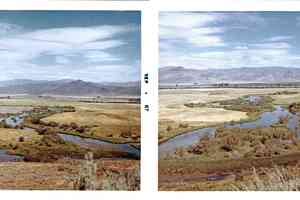
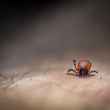

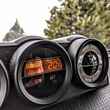
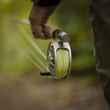

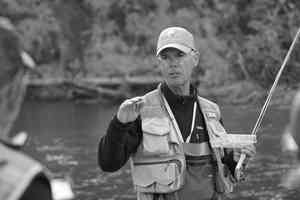
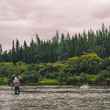

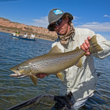
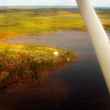
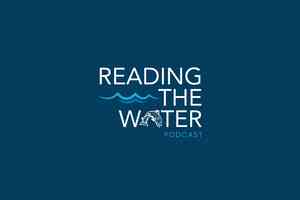
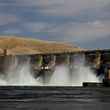

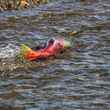
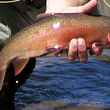
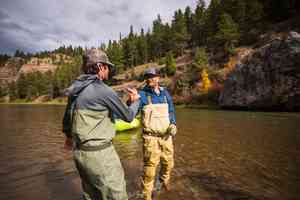
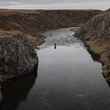

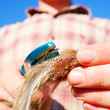
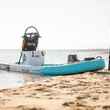
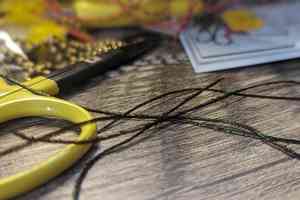
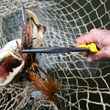
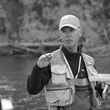
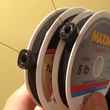
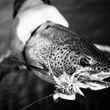
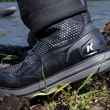
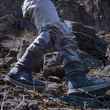
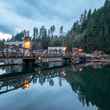
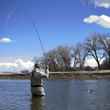
Comments
Edward replied on Permalink
Lovely story, and well written.
James Young replied on Permalink
Well, very few people have written about that part of Texas. I fear it is often overlooked as most people associate Texas with every part except East Texas. I grew up in the area and have read a few articles by Chris Hunt and always feel like I am in my youth again and the descriptions bring up vivid memories. I am sorry for the loss of his brother and grateful for the stories. I now have a young boy and like the author, wonder what my parent were thinking, letting myself and some of my friends go on the little adventures we did. Please keep these stories up. I love the walk down memory lane.
Thomas replied on Permalink
Enjoyed the read
Pages